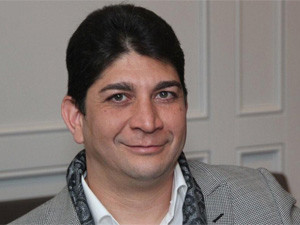
Vodacom says it supports cutting mobile termination rates as long as this is cost-based, but has raised issues with the proposal of asymmetry.
The cellular operator, South Africa's largest, was responding to the Independent Communications Authority of SA's (ICASA's) release of proposed termination rates that would put them on a glide path that will ultimately see them reach an all-time low of 10c. Mobile termination rates (MTRs or interconnect fees) are the fees operators pay to carry calls on each other's networks.
ICASA also came to a decision on the issue of asymmetrical termination rates - a case that has been ardently pleaded by third operator Cell C. It deemed asymmetry for players with less than 20% market share necessary to foster competition, and instituted a five-year sliding path - starting from March next year.
Asymmetrical rates will drop annually to meet the 2016 flat rate of 10c - starting from the current 44c high and dropping incrementally by between 4c and 7c annually, which benefits of Cell C and Telkom Mobile.
In response, Shameel Joosub, Vodacom group CEO, said the operator supports ICASA's goal of reducing mobile termination rates, provided that such a reduction is cost-based.
"Cuts in mobile termination rates can have a profound impact on both our business and those of our suppliers, franchisees and other stakeholders.
"We therefore support a managed 'glide path' of reductions over several years. We will be responding to ICASA to make the case that the proposed reduction and glide path, which has an initial drop of 50% in March 2014, are too steep and could have serious negative impacts."
Joosub adds, however, that asymmetry means Vodacom pays more to connect a voice call to someone on Cell C or Telkom Mobile than these networks pay to connect to someone using Vodacom.
"The proposed changes take the current rate of asymmetry from a 10% differential to rates ranging between 95% and 160% over three years. The accepted practice worldwide is declining asymmetry for a limited period for new entrants at a fraction of the levels proposed."
Vodacom intends to engage ICASA on asymmetry to motivate for a more reasonable outcome, says Joosub. "We see this proposed asymmetry as placing Vodacom (and by extension, our customers) in the position of effectively subsidising our competitors."
Share